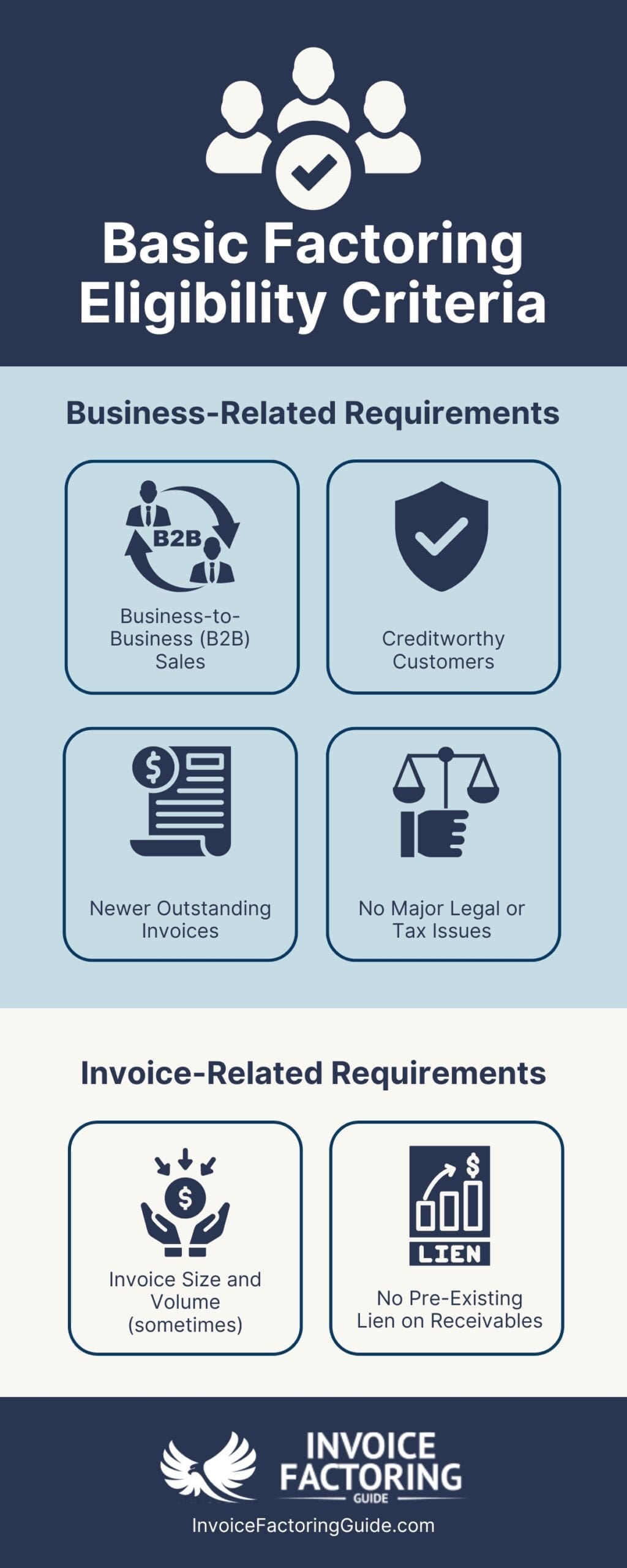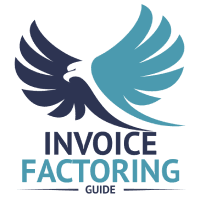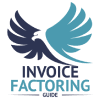
If you’ve ever tried to get a business loan, you know what a hassle it can be. There’s a long list of requirements, documents to gather, checks to be performed, and weeks, if not months, of waiting for a check – that is, if you’re even approved. Thankfully, there are business funding solutions that don’t make you jump through a million hoops, like factoring. On this page, we’ll walk you through factoring eligibility criteria and how the application process works, so it’s easier to see how it can work for your business.
Understanding Factoring Eligibility Criteria
Invoice factoring is a financial tool that allows businesses to sell their unpaid invoices to a factoring company in exchange for immediate cash. While most businesses can leverage it, there are specific requirements. A straightforward overview of what factoring companies typically look for is provided below.

Key Business-Related Invoice Factoring Requirements
First, let’s take a look at the base criteria for factoring approval.
Business-to-Business (B2B) Sales
Factoring is primarily for businesses that sell to other businesses (B2B), meaning you should be invoicing another company, not individual consumers. For instance, if you run a small trucking company that invoices freight companies or a manufacturer selling goods to retailers, you’re more likely to qualify. Likewise, businesses invoicing government agencies can benefit from invoice factoring for government invoices, gaining quick access to funds while waiting on payments from federal, state, or local entities.
Creditworthy Customers
Factoring companies don’t focus as much on your credit as they do on the credit of your customers. This is because the factoring company is purchasing your invoices and expects to collect payments from your clients. Your business becomes more eligible if your customers have a solid history of paying their bills on time. For instance, a company with major clients like Walmart or Amazon would be more attractive to factoring companies due to their high credit ratings and reliable payment track records.
Outstanding Invoices
The core of invoice factoring is the presence of outstanding, unpaid invoices. If your business offers net terms, such as net 30 or net 60 days, you may be a good fit for factoring, as these delayed payments can create cash flow gaps that factoring can fill.
No Major Legal or Tax Issues
Factoring companies typically want to work with businesses not entangled in legal disputes or significant tax problems. While minor issues may be negotiable, large lawsuits or liens can be a red flag.
Invoice Requirements When Qualifying for Invoice Factoring
To qualify, businesses must meet these basic requirements, but there are a few other aspects that can influence eligibility.
Invoice Size and Volume
Some factoring companies have minimum invoice amounts, such as $500 or $1,000 per invoice. Others may have monthly volume minimums, so businesses with consistent invoicing are more attractive. Smaller, irregular invoicing can make qualifying with certain factoring companies harder. If this is your situation, you’ll want to look for one that offers spot factoring or one that doesn’t have minimums.
No Pre-Existing Lien on Receivables
If you’ve already pledged your receivables as collateral for another loan, that can affect your eligibility for factoring. Factoring companies want to have clear rights to collect the invoices without complications from other creditors.
Additional Considerations
For those with a bit more background, it’s worth noting that the specific terms and qualifications for factoring can vary depending on the type of factoring you choose—recourse vs. non-recourse, for example. In recourse factoring, you may need to repurchase the invoice if the customer doesn’t pay. This can impact the factoring company’s risk and your eligibility if your customers have less reliable payment histories. However, even factoring companies with these concerns may be willing to work with you if you keep higher reserves or accept higher rates.
The Factoring Services Application Process
Applying for invoice factoring is typically a streamlined process, especially compared to traditional business loans. Most factoring companies aim to provide quick access to cash, so the application process is designed to be straightforward.
Documentation Needed for Factoring Applications
To get started, businesses will need to provide a set of documents to the factoring company. Key items typically required are outlined below.
Accounts Receivable Aging Report
This document outlines your outstanding invoices, detailing how long each invoice has been unpaid. Factoring companies use this report to assess which invoices are eligible for factoring and how long your customers typically take to pay.
Invoices for Factoring
You’ll need to submit copies of the actual invoices you want to factor. These invoices must be clear, unpaid, and reflect legitimate sales. If your business works on contracts, you may also need to submit these alongside the invoices to show proof of agreed-upon services.
Customer Information
Since factoring companies assess the creditworthiness of your customers, you’ll need to provide details about them. This can include contact information, credit histories, if available, and any other relevant financial data.
Business Financials
While factoring companies focus on your customers’ credit, they’ll still want to understand your overall financial health. This can include:
- Recent bank statements
- Financial statements like a profit and loss statement
- Tax returns (often for the past 1-2 years)
- Proof of business incorporation or registration.
Sales Agreements or Contracts
In industries where services are ongoing (like staffing or trucking), you may need to provide sales contracts or work agreements that show the terms of your business relationship with customers.
Assessing Accounts Receivable for Factoring Eligibility Based on Credit and Payment History

Once you submit the application, the factoring company will perform an assessment of your accounts receivable (A/R). Let’s take a look at how they evaluate the eligibility of your invoices.
Age of the Receivables
Factoring companies typically prefer invoices that are less than 90 days old. Older invoices, particularly those over 120 days, may be considered too risky. Some factoring companies specialize in older receivables, but you’ll often face higher fees in these cases.
Customer Payment History
As we mentioned earlier, the factoring company will dig into the payment history of your customers. If you have customers who frequently pay late or have unpaid invoices stretching beyond the due date, this can impact the factoring company’s decision or lead to higher fees.
Invoice Accuracy and Completeness
Factoring companies will ensure that the invoices are accurate, well-documented, and represent genuine, undisputed sales. If there are any ongoing disputes with your customers over the amount or service provided, those invoices are generally ineligible for factoring.
Concentration Risk
If a large portion of your receivables comes from one or two customers, this concentration can pose a risk to the factoring company. While it doesn’t necessarily disqualify you, they might view it as a higher risk and adjust their terms accordingly.
Terms of the Invoices
Factoring companies prefer invoices with clearly defined payment terms, such as net 30 or 60. They will avoid factoring invoices with open-ended terms, or those tied to complicated contingencies, because these increase the uncertainty of when they’ll be paid.
Factoring for Cash Flow Management When Your Business Qualifies for Receivable Factoring
Factoring is an excellent way to manage cash flow for many companies facing working capital challenges. To use an invoice factoring service, businesses need to meet specific requirements, such as having customers with good credit and providing a copy of their articles of incorporation, business tax ID, and a valid driver’s license. Factoring solutions can be ideal for those who need cash without the long wait associated with traditional bank financing. By filling out a factoring application, your business could receive funding from a factoring provider in just a few business days. This funding can help you grow your business, meet cash flow needs, and pay the invoices necessary to keep operations running smoothly.
Find Out if Your Invoices Qualify for Factoring Now
Don’t wonder if you’re eligible for factoring; find out for sure. Connect with a factoring specialist for a no-obligation rate quote.
Factoring Eligibility Criteria FAQs
Do I need good credit to qualify for factoring?
No, factoring companies focus more on your customers' credit than your own. While good business credit can help, factoring is designed to support businesses with less-than-perfect credit by leveraging the reliability of your customers’ payments.
What documents are needed to apply for invoice factoring?
Commonly required documents include your accounts receivable aging report, copies of invoices you want to factor, customer details, and financial records like bank statements or tax returns. Factoring companies may also request sales agreements or contracts, especially for ongoing services.
Can small businesses with bad credit still use factoring?
Yes, factoring is a popular option for small businesses with bad credit because it focuses on the creditworthiness of your customers. As long as your clients are creditworthy and have a history of paying invoices, your business can qualify for factoring, even with a lower credit score.
How do factoring companies assess the quality of my invoices?
Factoring companies evaluate invoices based on clarity, accuracy, and completeness. They prefer invoices with clear payment terms (like net 30) that reflect completed work or delivered goods. Undisputed and recent invoices are more likely to qualify, while older or disputed invoices may be rejected.
What is an accounts receivable aging report, and why is it important for factoring?
An accounts receivable aging report lists your outstanding invoices and how long each has been unpaid. Factoring companies use this report to assess your invoice quality and determine which invoices are eligible for factoring. They typically prefer invoices that are less than 90 days old.
How long does the factoring application process take?
The factoring application process is usually quick, often taking just a few days. Once you provide the required documents, factoring companies review your invoices and customer credit. If approved, you could receive funds within 24-48 hours after approval, though some also offer same-day payments.
What impact do unpaid invoices have on factoring eligibility?
Unpaid invoices are essential for factoring, but they must be recent and undisputed. Factoring companies prefer invoices that are no more than 90 days old. Invoices past 120 days may be considered too risky, potentially affecting your eligibility or factoring terms.
Why is my customer's credit score important in factoring?
Factoring companies rely on your customers to pay the invoices, so their creditworthiness is critical. If your customers have good payment histories and strong credit scores, it lowers the risk for the factoring company, increasing your chances of approval and better terms.
Can I factor invoices that are past due?
It depends on the factoring company, but generally, invoices that are less than 90 days old are preferred. Some companies may accept older invoices, but they may charge higher fees or reject those beyond 120 days as too risky.

About Invoice Factoring Guide
Related Articles
Get an instant funding estimate
Results are estimates based on the calculated rate and the total invoice amount provided.
Actual rates may vary.
Request a Factoring Rate Quote
PREFER TO TALK? Call us at 1-844-887-0300










